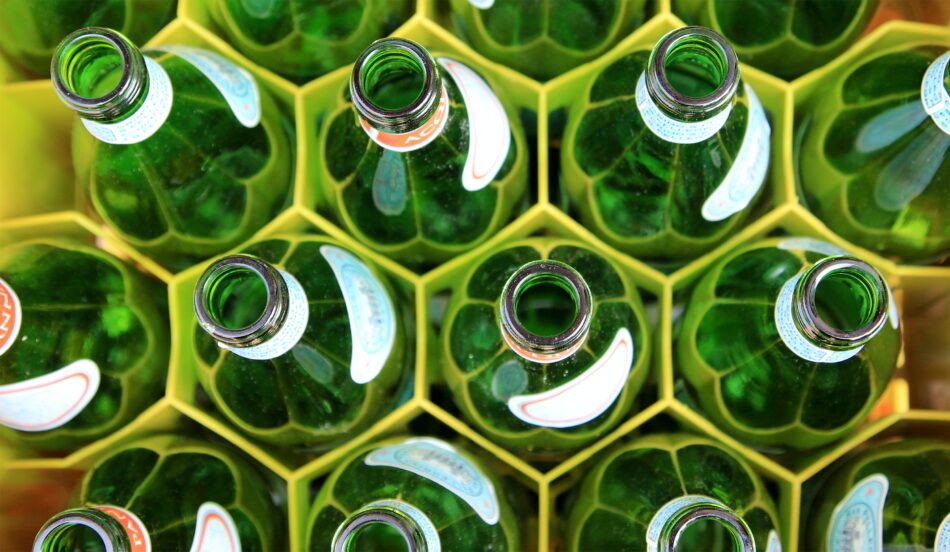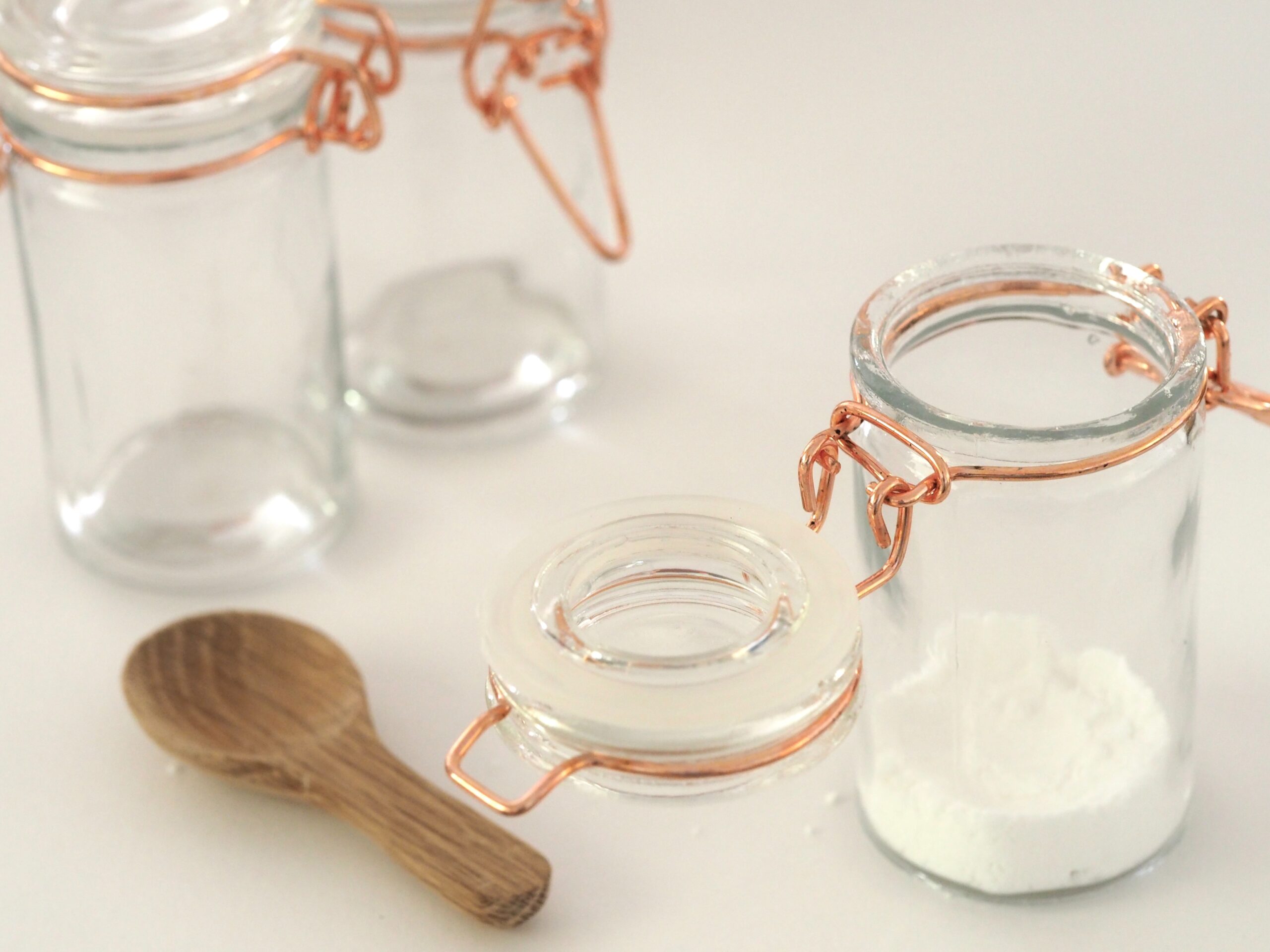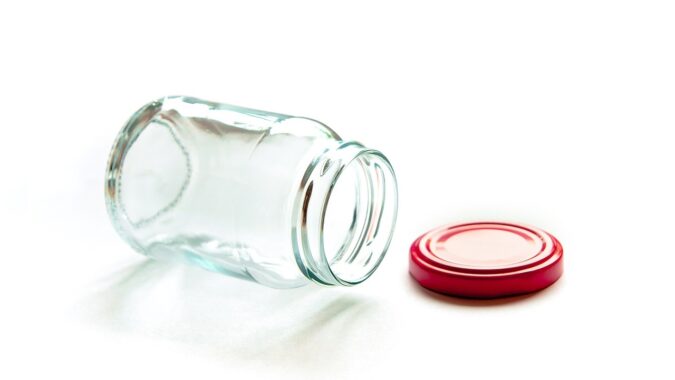Prepare Your Business for New Food Waste Legislation in the UK
From 31 March 2025, most UK businesses must arrange separate food waste collections. Learn and prepare for the new food waste legislation in the UK.

Glass bottles and jars are used everywhere – from the kitchens in our homes to pubs, restaurants, hotels, and many other places. As glass is sealable, washable, and reusable, it makes a great, safe container for all sorts of food and drinks. Once used though, what should you do with empty glass bottles and jars?
Millions of UK households already reuse glass bottles and jars to store dried rice or pasta, or for arts and crafts resources. Glass bottle recycling is another good option favoured more by businesses with such glass waste. Find out all you need to know about disposing of these items in a sustainable way, including glass bottle recycling ideas for your home or business.
You can recycle almost all glass jars and bottles. This includes recycling glass bottles of any type and colour (wine bottles, beer bottles, spirit bottles, and milk bottles). You can also recycle glass jars (including those used for sauces, jam, and baby food).
Non-food glass bottles and jars are also recyclable. These include decorative jars and bottles, as well as those used to store perfume, face creams, and aftershave. Recycling glass bottles and jars prevents glass from entering our environment in dangerous forms and could be a huge help to saving natural habitats.
There are some bottles and jars you can’t recycle. These include:
You can’t recycle these glass bottles and jars because they don’t melt at the same temperature as other glass bottles and jars. If you put these items in with glass recycling, it can mean the entire load is rejected. It can also mean new containers are vetoed.
Sometimes you can recycle these types of glass bottles and jars separately. Always check with your local council on their website or by telephone to determine the best way to recycle them if possible.
Check the recycling label first to ensure the type of glass bottle or jar is recyclable. The incorrect procedure could mean the entire load is rejected. However, the process to recycle glass bottles and jars is very simple:

There are a few steps to the glass recycling process when your old bottles and jars leave your home or business:
When glass is incorrectly disposed of, it often breaks. Sharp shards of glass from bottles and jars can be a major hazard to young children, pets, wildlife, and even plants. And if glass is thrown away with general waste it may end up in landfill, where it can take many years to break down.
A few key facts about recycling glass bottles and jars are that:

To dispose of glass in the UK from your home you should take it to your nearest bottle bank. Check your local council website for details of where the closest bottle bank is – they’re normally in council and supermarket car parks. Here you can dispose of and recycle glass bottles and jars of any colour.
Alternatively, check if your local household waste recycling centre (HWRC) accepts glass for disposal and recycling. You can dispose of glass at most HWRCs, and it will be recycled. Some also accept broken glass bottles, jars, and panes.
Glass waste should be disposed of by being recycled. Clean and dry any glass bottles and jars to removed leftover food waste and other contaminants. At home or in the workplace you should store waste glass in a separate bin, then arrange collection by licensed waste carriers or take it to a local bottle bank or HWRC for glass waste disposal.
You should not put glass in a general waste bin in the UK. Most councils will accept and remove your domestic general waste bins if there’s glass in them, but it should be avoided as glass is 100% recyclable. Every year in the UK around 28 billion pieces of glass end up in landfill when disposed of with general waste.
UK businesses should also avoid putting glass in a general waste bin, as they have a responsibility to reduce, reuse, and recycle as much commercial waste as possible. Any broken glass in a general waste bin can also harm those handling it. It’s safer, greener, and more responsible to recycle glass separately.
Large shards and panes of glass from your home should be taken to your nearby HWRC for recycling. Any waste glass that doesn’t fit in a bottle bank can be recycled in the specific glass waste at a HWRC. Businesses can recycle large glass with the rest of their glass waste, as it’s sorted and checked before being recycled.
You can take broken glass to your local tip or HWRC in the UK. Here it will be recycled alongside other types of glass waste. Glass is 100% recyclable and normally crushed down into small pieces during the process, so broken shards of glass are normally still recyclable.
Find out more about other rubbish streams.
Get a fast FREE quote for your glass recycling
From 31 March 2025, most UK businesses must arrange separate food waste collections. Learn and prepare for the new food waste legislation in the UK.
The study participants included business owners and company employees, revealing unexpected findings about corporate environmental practices.